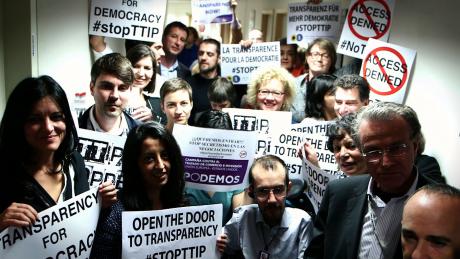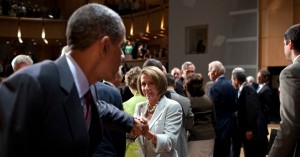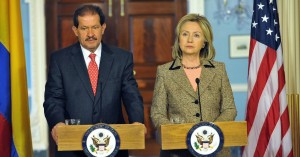Faced with a possible shock rejection of TTIP by MEPs, Brussels simply cancelled the vote this week – and now Washington moves swiftly to speed up the publicly unpopular trade deal.
By Molly Scott-Cato. Published June 11, 2015 at openDemocracy.
For a while there, it looked like the EU/US TTIP deal – the monumental power grab by corporations over democracy – was, far from “fast-tracking” in the US, crawling along the slow lane, or maybe even stalled in the hard shoulder. Democrat senators dug their heels in last month on TTIP (and the equally contentious Trans-Pacific Partnership (TTP) deal), claiming these trade deals would drag down US wages and cost American jobs.
But these Democrats eventually decided to switch sides.
And now it looks like Obama is going for a high-stakes vote to renew the ‘fast-track’ TTIP negotiation process (minimising democratic oversight) as early as tomorrow (Friday).
It’s in this light that we have to view the scandalous decision by the EU presidency to deny myself and other MEPs a vote on TTIP this week. Continue reading










![TTIP protest in London, July 2014. Photo by World Developement Movment [CC BY 2.0 (http://creativecommons.org/licenses/by/2.0)], via Wikimedia Commons](http://occupyworldwrites.org/wp-content/uploads/2015/03/TTIP_protest_in_London-300x200.jpg)
